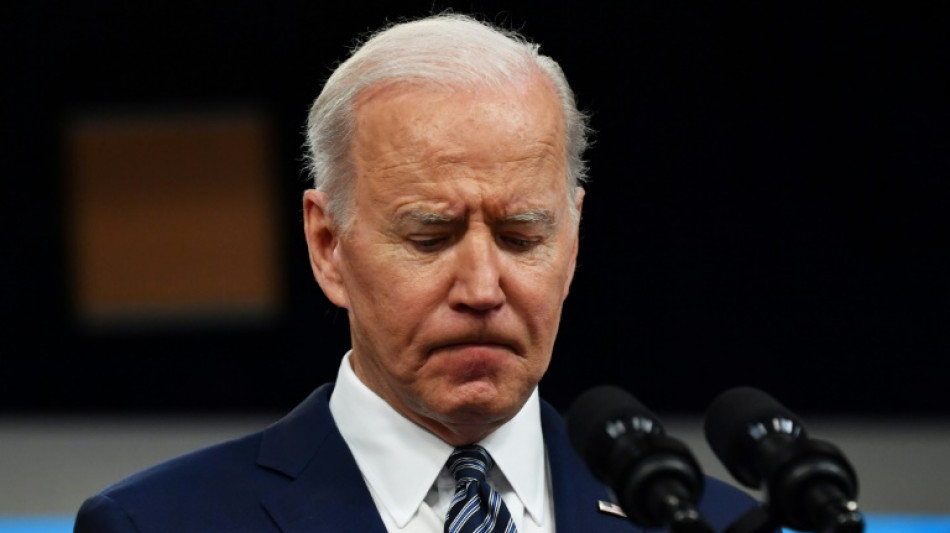
-
 South African artist champions hyenas in 'eco-queer' quest
South African artist champions hyenas in 'eco-queer' quest
-
Danish PM in 'unity' Greenland visit amid US takeover threats

-
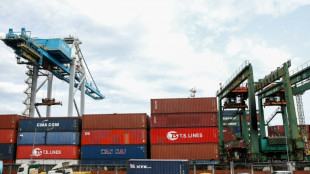 Taiwan says US tariffs 'highly unreasonable'
Taiwan says US tariffs 'highly unreasonable'
-
Lawson says ruthless Red Bull axing was 'tough to hear'

-
 Heat humble Celtics for sixth straight win, Thunder roll on
Heat humble Celtics for sixth straight win, Thunder roll on
-
Trump escalates trade war with sweeping global tariffs
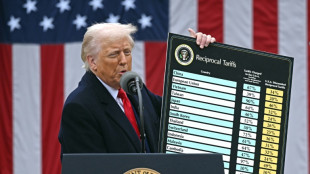
-
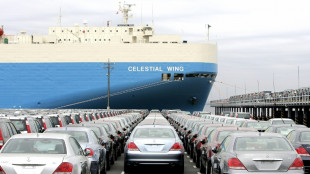 Japan says US tariffs 'extremely regrettable', may break WTO rules
Japan says US tariffs 'extremely regrettable', may break WTO rules
-
South Koreans anxious, angry as court to rule on impeached president

-
 Juve at in-form Roma with Champions League in the balance
Juve at in-form Roma with Champions League in the balance
-
Injuries put undermanned Bayern's title bid to the test

-
 Ovechkin scores 892nd goal -- three away from Gretzky's NHL record
Ovechkin scores 892nd goal -- three away from Gretzky's NHL record
-
Australian former rugby star Petaia signs for NFL's Chargers

-
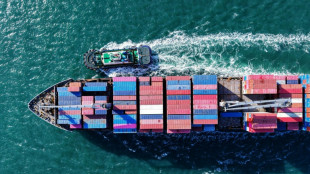 China says opposes new US tariffs, vows 'countermeasures'
China says opposes new US tariffs, vows 'countermeasures'
-
Athletics world watching as 'Grand Slam Track' prepares for launch

-
 Heat humble Celtics for sixth straight win, Cavs top Knicks
Heat humble Celtics for sixth straight win, Cavs top Knicks
-
Quake-hit Myanmar's junta chief to head to Bangkok summit

-
 New Spielberg, Nolan films teased at CinemaCon
New Spielberg, Nolan films teased at CinemaCon
-
Shaken NATO allies to meet Trump's top diplomat
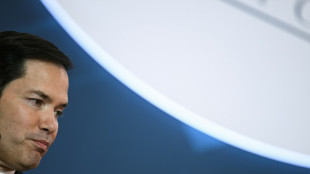
-
 Israel's Netanyahu arrives in Hungary, defying ICC warrant
Israel's Netanyahu arrives in Hungary, defying ICC warrant
-
Shiny and deadly, unexploded munitions a threat to Gaza children

-
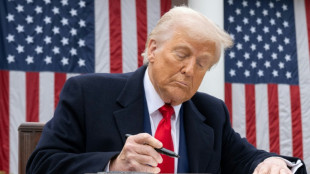 Stocks tank, havens rally as Trump tariffs fan trade war
Stocks tank, havens rally as Trump tariffs fan trade war
-
Altomare hangs on to tie defending champ Korda at LPGA Match Play

-
 Paraguay gold rush leaves tea producers bitter
Paraguay gold rush leaves tea producers bitter
-
Health concerns swirl as Bolivian city drowns in rubbish

-
 Syria says deadly Israeli strikes a 'blatant violation'
Syria says deadly Israeli strikes a 'blatant violation'
-
Financial markets tumble after Trump tariff announcement
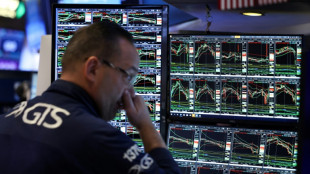
-
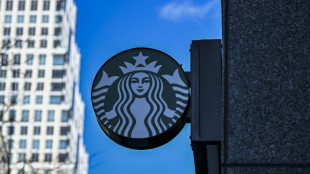 Starbucks faces new hot spill lawsuits weeks after $50mn ruling
Starbucks faces new hot spill lawsuits weeks after $50mn ruling
-
Europe riled, but plans cool-headed response to Trump's tariffs
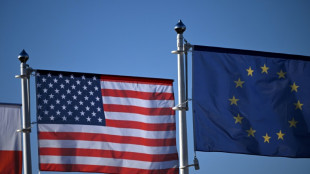
-
 'Shenmue' voted most influential video game ever in UK poll
'Shenmue' voted most influential video game ever in UK poll
-
New coal capacity hit 20-year low in 2024: report
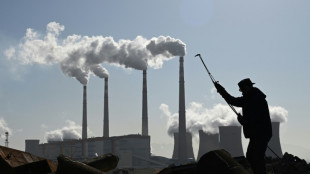
-
 Revealed: Why monkeys are better at yodelling than humans
Revealed: Why monkeys are better at yodelling than humans
-
Key details on Trump's market-shaking tariffs
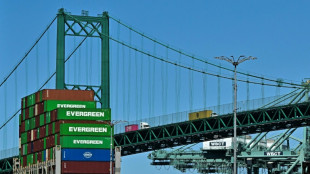
-
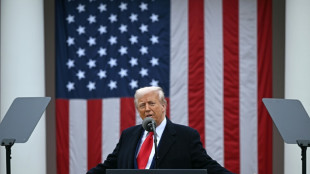 'A little tough love': Top quotes from Trump tariff talk
'A little tough love': Top quotes from Trump tariff talk
-
US business groups voice dismay at Trump's new tariffs

-
 Grealish dedicates Man City goal to late brother
Grealish dedicates Man City goal to late brother
-
US tariffs take aim everywhere, including uninhabited islands
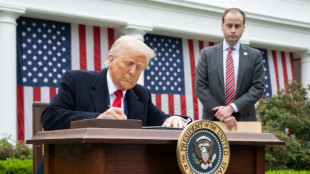
-
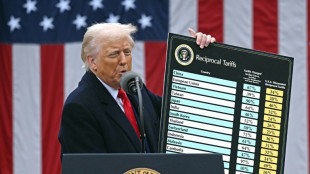 Trump sparks trade war with sweeping global tariffs
Trump sparks trade war with sweeping global tariffs
-
Israeli strikes hit Damascus, central Syria; monitor says 4 dead

-
 Slot 'hates' offside rule that gave Liverpool win over Everton
Slot 'hates' offside rule that gave Liverpool win over Everton
-
US stocks end up, but volatility ahead after latest Trump tariffs
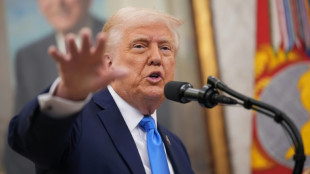
-
 Barca oust Atletico to set up Clasico Copa del Rey final
Barca oust Atletico to set up Clasico Copa del Rey final
-
Mourinho grabs Galatasaray coach's face after losing Istanbul derby

-
 Grealish strikes early as Man City move up to fourth in Premier League
Grealish strikes early as Man City move up to fourth in Premier League
-
Reims edge out fourth-tier Cannes to set up PSG French Cup final

-
 Liverpool beat Everton as title looms, Man City win without Haaland
Liverpool beat Everton as title looms, Man City win without Haaland
-
Jota wins bad-tempered derby as Liverpool move 12 points clear

-
 Inter and Milan level in derby Italian Cup semi
Inter and Milan level in derby Italian Cup semi
-
Stuttgart beat Leipzig to reach German Cup final

-
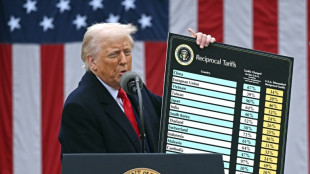 Trump unveils sweeping global tariffs
Trump unveils sweeping global tariffs
-
Italian director Nanni Moretti in hospital after heart attack: media


Will Biden's plan to tap US oil reserves reduce gasoline prices?
Citing the need to counteract the "Putin price hike" following Russia's invasion of Ukraine, President Biden has announced a sweeping plan to make unprecedented use of US emergency oil stockpiles.
Under Biden's plan, the United States will release up to a million barrels a day every day for six months from its Strategic Petroleum Reserve (SPR).
On Friday, the International Energy Agency announced that a group of 30 other countries will also release crude onto the market from strategic holdings following an emergency meeting in Paris.
Biden's announcement Thursday prompted an immediate slump in oil prices, but the crude market was choppy on Friday, suggesting investor skepticism that the emergency releases will change the picture.
Below are some of the main questions about the SPR and the likely impact of the policy.
- What is the Strategic Petroleum Reserve ? -
Set up in 1975 following the 1973 Arab oil embargo, the SPR is maintained in immense salt caverns along the Gulf of Mexico. The IEA requires members to hold 90 days of import protection, a requirement the United States has traditionally met with SPR and industry stocks.
At its peak, the SPR contained 727 million barrels in December 2009. The level stood at 568 million barrels as of last week, according to government data.
If the United States goes forward with Biden's plan, it would reduce the SPR to levels not seen since the mid-1980s.
- How does Biden's plan compare with past uses?
The White House's plan dwarfs previous SPR releases, which included President George H.W. Bush ordering about 17 million barrels released during the first Gulf War in 1991 and a 2011 release by President Barack Obama of 30.6 million barrels due to the disruption of Libyan production.
The announcement marks Biden's third move to tap the SPR.
In November, the United States announced it was putting out 50 million barrels of oil in response to soaring inflation amid pandemic-exacerbated supply chain snarls. Early last month, Washington also joined a 60 million emergency release announced by the IEA to address disruption from the Russian invasion.
Given the scale of the release, some analysts have said Energy Department officials may have trouble finding buyers for crude, or face infrastructure bottlenecks. A note from JPMorgan Chase predicted the release would add 850,000 barrels per day, rather than one million,
Bill O'Grady, chief market strategist at Confluence Investment Management, said that the move comes as the long-term need for so much stockpiling looks less acute because of decarbonization efforts to address climate change and as the US shale boom has lessened the need for imports.
"I don't think that oil will ever be replaced," O'Grady said.
- Will it bring down prices? -
Oil prices ended about three percent lower on Thursday following the official announcement after falling even more on the initial reports about the plan.
"The market reacted immediately after the announcement was made," said Andy Lipow of Lipow Oil Associates in Houston, who thinks gasoline prices will fall 10 to 15 cents a gallon due to the SPR release.
The move comes as the US president faces long odds in the November midterm elections, as runaway consumer prices weigh threaten to overshadow a strong labor market.
Biden described the policy as meant to "ease the pain" of lofty gas prices, which now stand above $4.20 a gallon, up almost 50 percent from last year.
But now that the announcement has been priced in, "the market will look to the next headline for direction," Lipow said.
"It's like a quick fix," said Jim Krane, a fellow at Rice University's Baker Institute for Public Policy.
The quantity of oil is more than twice the increased output just offered by the OPEC+ group of exporters, and will "give us some relief," said Krane.
But the extended nature of the SPR plan could blunt some of the longer-term impact if US shale producers defer investments in new drilling, or OPEC opts against shifting from its current austerity posture.
Biden has almost no other levers for lowering oil prices, said Krane, who notes "the US does not have a national oil company that takes orders from the government."
Oil prices were already elevated prior to the Ukraine invasion, but Russia's attack prompted crude prices to spike to almost $140 a barrel in early March after the United States banned Russian energy imports -- not far from their all-time high.
While other oil importing countries have not followed the US lead, some analysts have estimated that as much as three million barrels a day may be sidelined by crude buyers "self sanctioning," adding to uncertainty in a period when inventories lag historic levels.
Th.Berger--AMWN